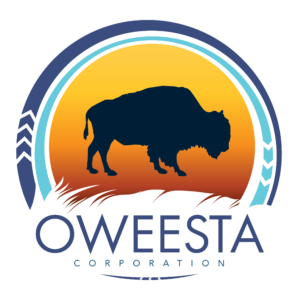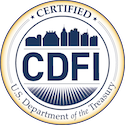5th Annual Native CDFI Capital Access Convening
ONLINE
In an effort to ensure the health and safety of everyone within our communities during the COVID-19 pandemic, Oweesta has made the difficult decision to cancel face-to-face interaction for our upcoming Capital Access Convening. We will no longer be holding an in-person conference in Portland, Oregon on June 23-25th. However, it is clear that—in a time of crisis—we need, more than ever, to come together to encourage and learn from one another. Therefore, in lieu of a physical conference, we are proud to announce our first fully online conference platform, taking place on Zoom for the same 3-day period! We invite you to enjoy all the splendor and comradery of our normal convening, from the comfort and safety of your own home! We are reorganizing with our speakers and sponsors currently and we will follow up with more information as it becomes available. We hope to create a Zoom meeting atmosphere that will be as informative and memorable as our previous Capital Access Convenings.
Our opening day will include an opening plenary with speeches, prayer, and a general session. Day two will have break-out sessions and networking opportunities with scheduled breaks between. Day three will have the return of The Manatee Tank, and our normal closing ceremony events.
We apologize for any inconvenience, and hope you’ll understand the need for this change. Wishing everyone good health in this time of crisis!
Agenda
Session Descriptions & Speaker Bios
Day 1 ~ June 23rd
12:00 pm-12:45 pm MT - Opening Plenary
Join Oweesta in our opening honor song with the drum Northern Lights from Turtle Mountain Chippewa Tribe and opening plenary speeches, including a State of the Native CDFI Industry from First Nations Oweesta Corporation.
Presented by: Chrystel Cornelius, Executive Director, First Nations Oweesta Corporation
Chrystel Cornelius is the Executive Director of First Nations Oweesta Corporation. As the only national Native CDFI intermediary, Oweesta’s mission is to provide opportunities for Native people to develop assets and create wealth by assisting in the establishment of strong, permanent institutions and programs, contributing to economic independence and strengthening sovereignty for all Native communities. Oweesta provides Native CDFIs with debt capital investments, technical assistance, and training to deliver financial and wealth building education programs to Tribal members across the United States.
Ms. Cornelius has worked with Native communities for most of her professional career, with more than 20 years of experience working in the Native economic development field. She is an enrolled member of the Oneida Nation of Wisconsin and a member of the Turtle Mountain Band of Chippewa Indians located in North Dakota. As a former tribal planner for seven years of the Turtle Mountain Band, she has extensive experience in tribal government structures and coordinating with various government and private funding entities. She has developed and sustained numerous economic development initiatives for the Tribe, including wind energy initiatives, manufacturing contracts, as well as infrastructure projects for enhancing the overall capacity for reservation private and tribal business development.
Ms. Cornelius was also the former and founding Executive Director of the Turtle Mountain CDFI. Incorporated in 2006, the organization provides an array of business development services to promote lending and technical assistance efforts and opportunities to enhance entrepreneurial opportunities for its tribal membership. Ms. Chrystel Cornelius attained a Bachelor’s Degree in Business Management from the University of Mary in Bismarck, North Dakota.
Included in General Registration.
1:00 pm-2:15 pm MT - Research on the Impact of Native CDFIs
Join us for our opening plenary session as the Federal Reserve Bank of Minneapolis discusses their new research on the impact of Native CDFIs, “Community Development Financial Institutions and Individuals’ Credit Risk in Indian Country”.
Presented by Michou Kokodoko, Project Director, Federal Reserve of Minneapolis Center for Indian Country Development
Michou Kokodoko is a Project Director in the Community Development Department at the Federal Reserve Bank of Minneapolis. His work has included organizing and presenting at community development financial institutions/microenterprise/entrepreneurship workshops and conferences to build the organizational, lending, and technical assistance capacity of small business development practitioners and organizations. He has also written articles and reports on various community development finance topics. Prior to joining the Minneapolis Federal Reserve, he managed a community development corporation, providing management consulting and financial planning services to hundreds of ethnically diverse entrepreneurs in one of the most economically depressed neighborhood in Minneapolis. His work resulted in the rebuilding of pockets of a neighborhood that had suffered from long-term disinvestment. Michou currently serves on the finance committees of Hope Community, Inc. and the Metropolitan Consortium of Community Developers. He holds an MBA from Metropolitan State University and a Master’s degree in Software Engineering from the University of St. Thomas. He is also certified as an economic development finance professional. Michou’s uncommon education and his depth of experience in multiple fields bring a unique perspective to his work to help promote economic growth and financial stability for lower-income communities and individuals.
2:30 pm-3:30 pm MT - Native CDFI Agriculture Address
Session Description TBD
Presented by Native American Agriculture Fund
Day 2 ~ June 24th
11:15 am-12:15 pm MT - Networking Session #1
This session allows you to meet with potential funders and investors in a small group setting. Due to the intimate nature of this setting, please register early for one of the two networking sessions within the Capital Access Convening registration. Oweesta has two sessions available with limited space and participants will be able to register for only one Networking Session on Wednesday, June 24, 2020 at 11:15am MT or 4:15pm MT. Thank you for your interest and participation in this unique opportunity!
12:30 pm-1:30 pm MT - Impact Evaluation for Small Organizations on a Budget
Start by learning about impact evaluation – what is it and why is it important? Then explore some of the best methods of conducting impact evaluation from a series of case studies. Then, in teams, develop a workplan proposal for the most creative, cost effective, and time maximizing impact evaluation strategy to present back to the group. Each member of the winning team, judged by your peers, will receive 2 hours of free data analysis from Sweet Grass. We conclude the session by exploring the plethora of free and inexpensive tools and resources at your disposable that can assist in your impact evaluation efforts. Come away from this session with some actionable strategies to implement impact evaluation, and thus the power of data, into everything you do at your CDFI! Explore creative ways to do impact evaluation. Workplan with peers to develop impact evaluation strategies that fit your organization. Explore impact evaluation tools and resources to offset costs and maximize staff time.
Speaker: Andrea Akers Mader, Principal Director, Sweetgrass Consulting
Andrea’s training and values lie in the importance of a culturally relevant and participatory approach utilizing a variety of evaluative methods specifically tailored to the client and project. Since 2008 she has engaged in impact measurement and evaluation, community and market research, and strategic consulting. Much of her experience has been with non-profit organizations working on a variety of projects ranging from developing and implementing full evaluation plans, to specific research projects, to community action planning and facilitation. Her work primarily focuses on designing impact and evaluation programs from theories of change and logic models, to data collection instruments, to data management systems to standardized reporting systems. She has designed and facilitated a multitude of focus groups and community meetings centered on gaining feedback to influence development projects.
1:45 pm-2:45 pm MT - Rebuilding our Economy Post COVID-19: Guarantees
The scale of investment needed to fund critical infrastructure, services and access to capital in low-income communities in the United States far exceeds available public, private and philanthropic resources. The scarcest resource, philanthropic capital, is critical to growing community investment due to its ability to act as a catalyst for conventional capital; to demonstrate solutions that can be emulated by public resources; and to drive investments that seek meaningful and measurable impact in communities. However, institutional barriers, regulatory restrictions and narrow programmatic mandates have restricted philanthropic activity in community and impact investing broadly and hampered the collective action necessary to leverage these scarce resources to create meaningful change. New collaborations and infrastructures are necessary to broaden the ways in which philanthropy can effectively invest for impact. These collaborations are critical to advancing the impact investing ecosystem and facilitating more community development impact investments.
Guarantees are an underutilized tool in the social investing landscape. The Global Impact Investing Network (GIIN) released a study in 2017 that identified two common barriers to scaling the use of guarantees: perceived product complexity by guarantors and the challenges that financial organizations face identifying and accessing credit enhancement sources. To ease this friction, investment practitioners are designing pooled vehicles to aggregate guarantee commitments from philanthropic institutions and provide targeted guarantees to community lenders, intermediaries and aspiring entrepreneurs. This session will detail the mechanics – like custom underwriting criteria, pro-rata loss sharing and impact targets – of these guarantee pools.
The Community Investment Guarantee Pool (CIGP) is a ground-breaking collaborative guarantee pool launching in the fourth quarter of 2019 with $33.1 million in capacity from a group of founding investors. Founding investors include The Kresge Foundation, Annie E. Casey Foundation, Dignity Health, Phillips Foundation, Gary Community Investment, The California Endowment, Weingart Foundation, Chan Zuckerberg Initiative, Seattle Foundation and Jessie Ball duPont Fund. CIGP is being launched as a demonstration project to the field – bringing together healthcare systems, private foundations, community foundations and family offices – to address critical financing needs in the area of affordable housing, job creation and climate solutions without requiring any current liquidity from investors.
Relevance for CDFIs Serving Native Communities and Populations: One of the CIGP’s overarching goals is to diversify the type of intermediaries who are able to access sources of credit enhancement and increase the amount of capital that is available to invest in affordable housing, entrepreneurship and climate solution technology – particularly in Native communities and communities of color.
Session Objectives:
– Feature learnings from the guarantors who will, by the time of Oweesta conference executed the first panel of guarantees to qualified intermediaries across the country.
– Discuss how diversity, equity and inclusion values are being operationalized to generate meaningful impact.
– Detail CIGP’s robust impact and evaluation framework and workplan.
– Invite the speakers – some ranging from experienced to novice users of guarantees – to share some guidance on the power of credit enhancement as a tool for enabling the flow of capital to innovative projects, products and communities.
– Discuss the feedback that we’ve heard from financial intermediaries about how the guarantee structures are enabling greater flow of capital.
Presented by Teri Lovelace, Locus Impact Investing; Christine Ryan, The California Endowment; Joel Smith, Native American Bank
Included in general registration.
3:00 pm-4:00 pm MT - Business Resiliency
Session Description TBD.
Presented by Adina Abramowitz.
Adina Abramowitz is an independent organizational consultant with broad expertise in the field of community development finance. She is the President of Consulting for Change, a consulting practice specializing in maximizing the impact, market responsiveness, and efficiency of nonprofit organizations. For over twenty years Adina has held progressively responsible positions in nonprofit management and for the past twenty years she has provided strategic, financial, and organizational development consulting services to nonprofit organizations. Founded in 2006, Consulting for Change focuses on strategic and operational planning, market analysis and product development, organizational assessment, lending process improvement, capitalization, impact measurement systems, board and staff Development, succession planning, and organizational change in nonprofit organizations. In 2007, Adina deepened her specific expertise in relation to Community Development Financial Institutions (CDFIs) by becoming an Aeris Rater. In 2015-16 she helped Aeris develop standard impact measurement metrics for the CDFI industry. Recently she has provided strategic planning to both small and emerging CDFIs such as Chi Ishobak and Neighborhood Concepts, and to larger more mature CDFIs such as Cinnaire, NeighborWorks Capital and Colorado Enterprise Fund. Adina is a graduate of Barnard College. She lives in Philadelphia with her wife, Naomi Klayman, and enjoys biking and playing with her four grandchildren.
Included in General Registration.
4:15 pm-5:15 pm MT - Networking Session #2
This session allows you to meet with potential funders and investors in a small group setting. Due to the intimate nature of this setting, please register early for one of the two networking sessions within the Capital Access Convening registration. Oweesta has two sessions available with limited space and participants will be able to register for only one Networking Session on Wednesday, June 24, 2020 at 11:15am MT or 4:15pm MT. Thank you for your interest and participation in this unique opportunity!
Day 3 ~ June 25th
12:15 pm MT - The Manatee Tank
Don’t miss out on this year’s Manatee Tank, where we will highlight aspiring Native CDFIs seeking investment as they make brief presentations to a panel of “manatee” investors and funders, who ask key questions and discuss investment in these organizations.
2:30 pm-3:15 pm MT - Closing Convening
This closing session for the convening will include Northern Lights Drum from Turtle Mountain Chippewa Tribe and closing remarks from Chrystel Cornelius.




